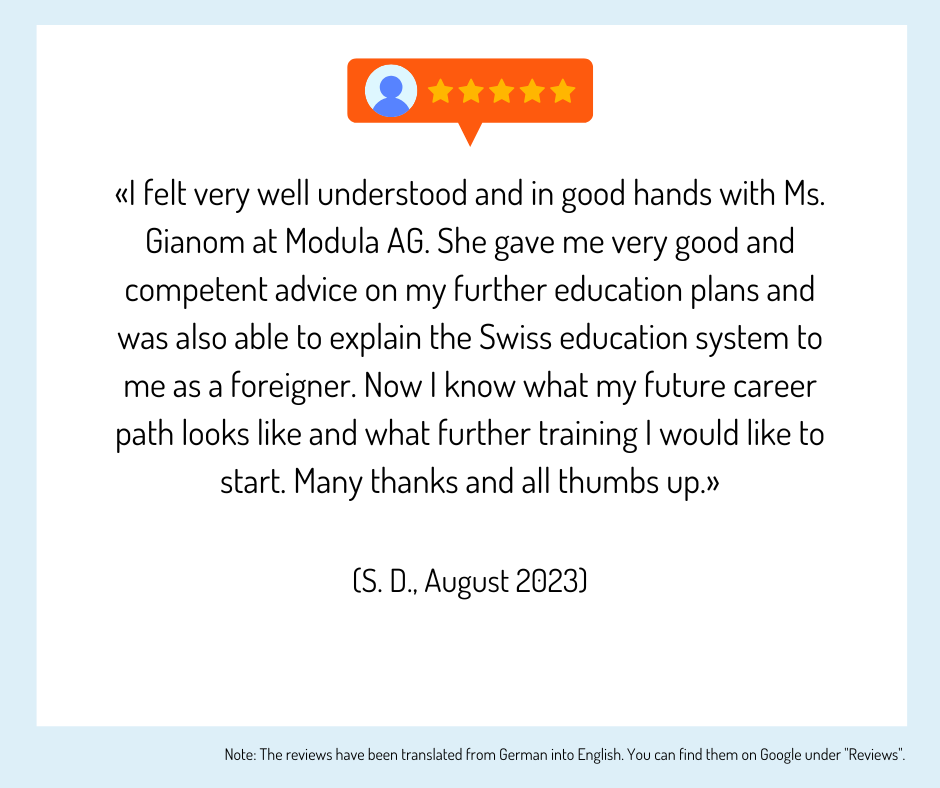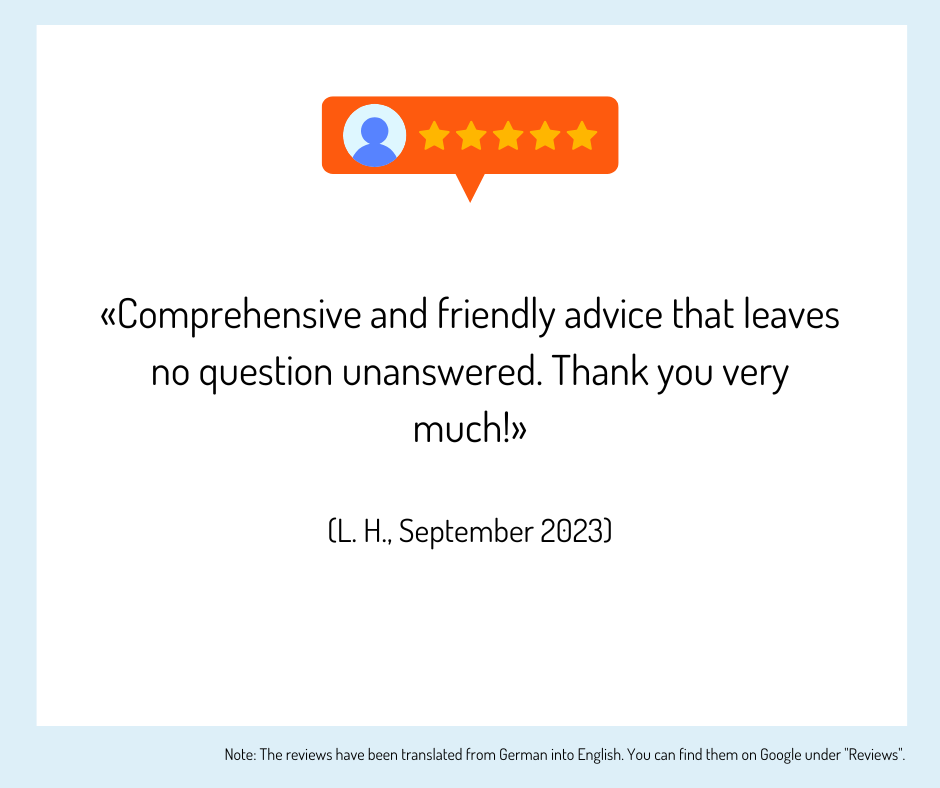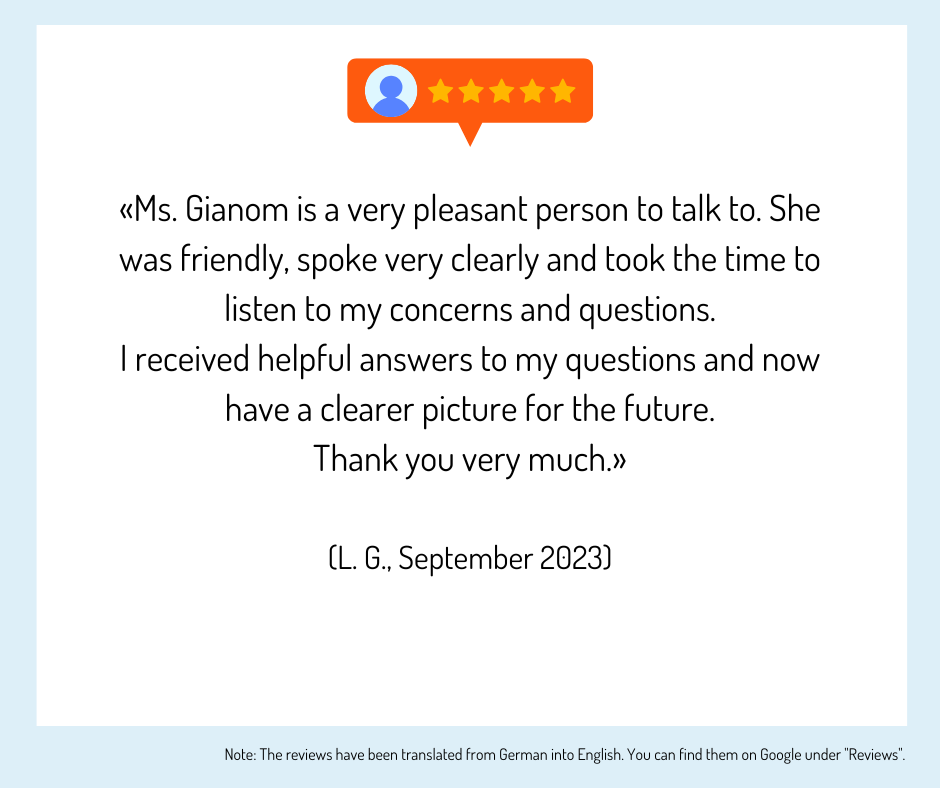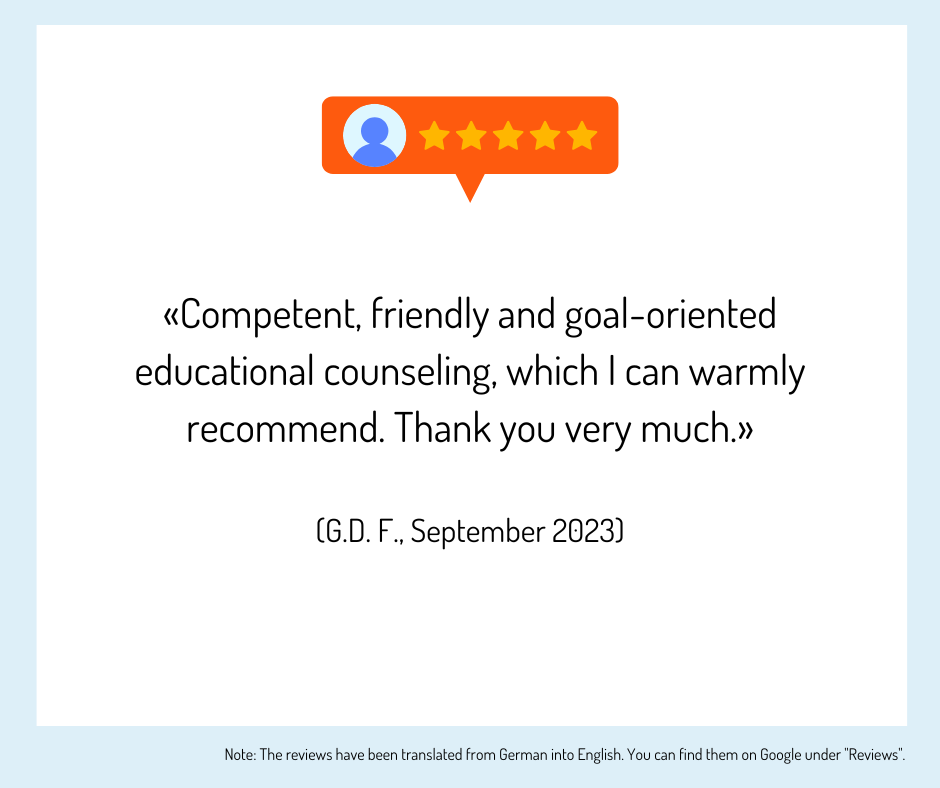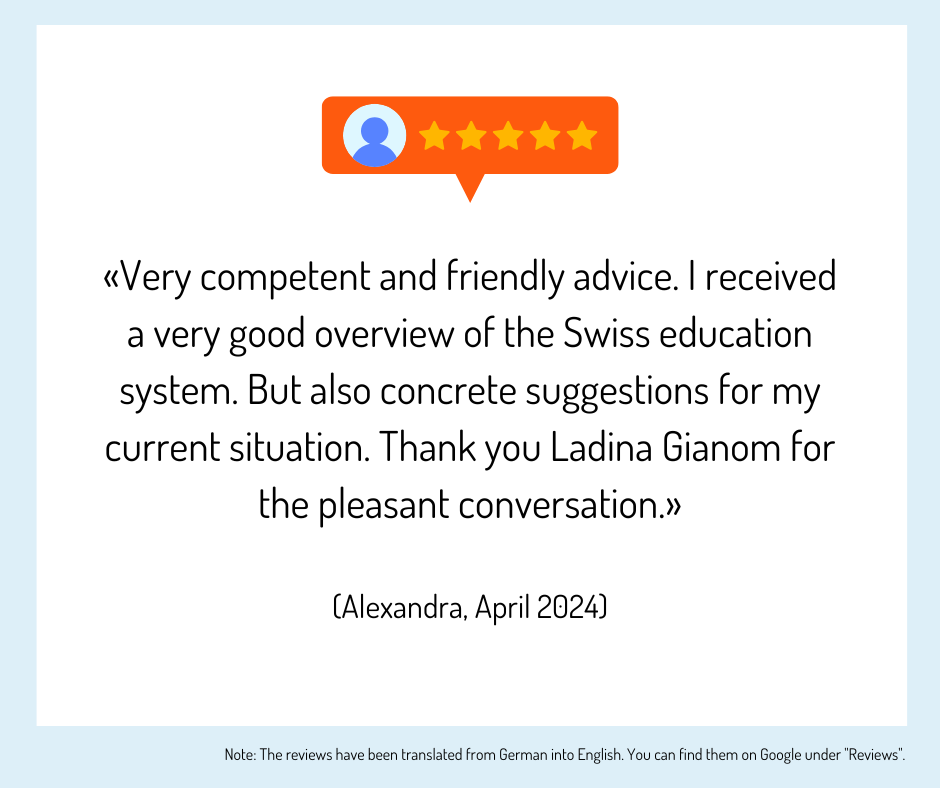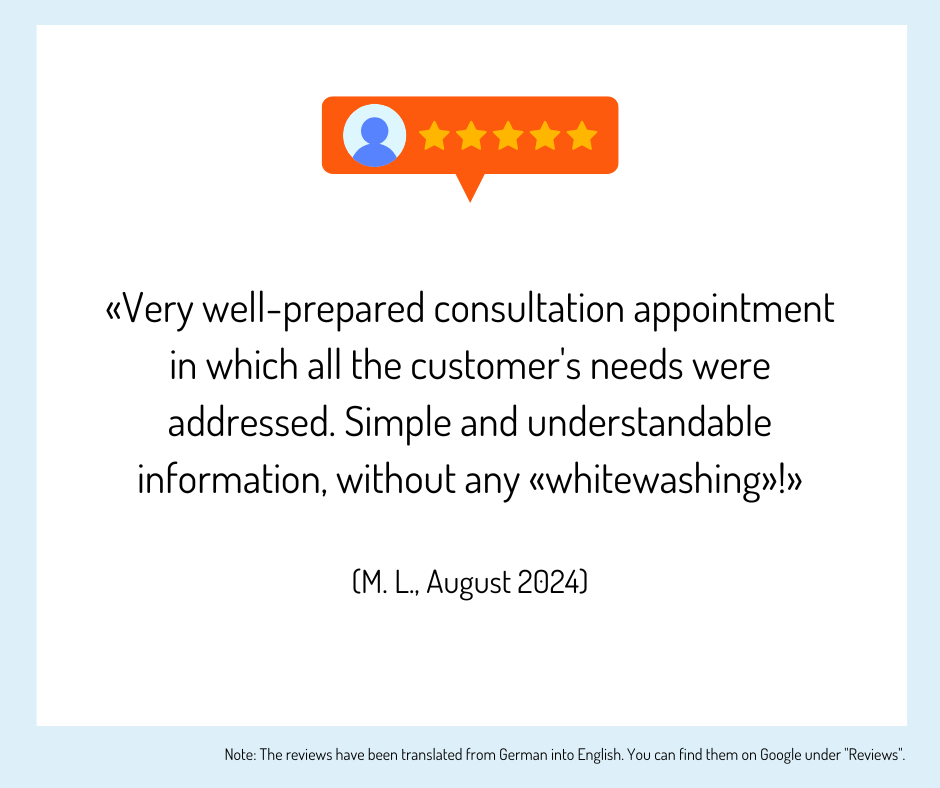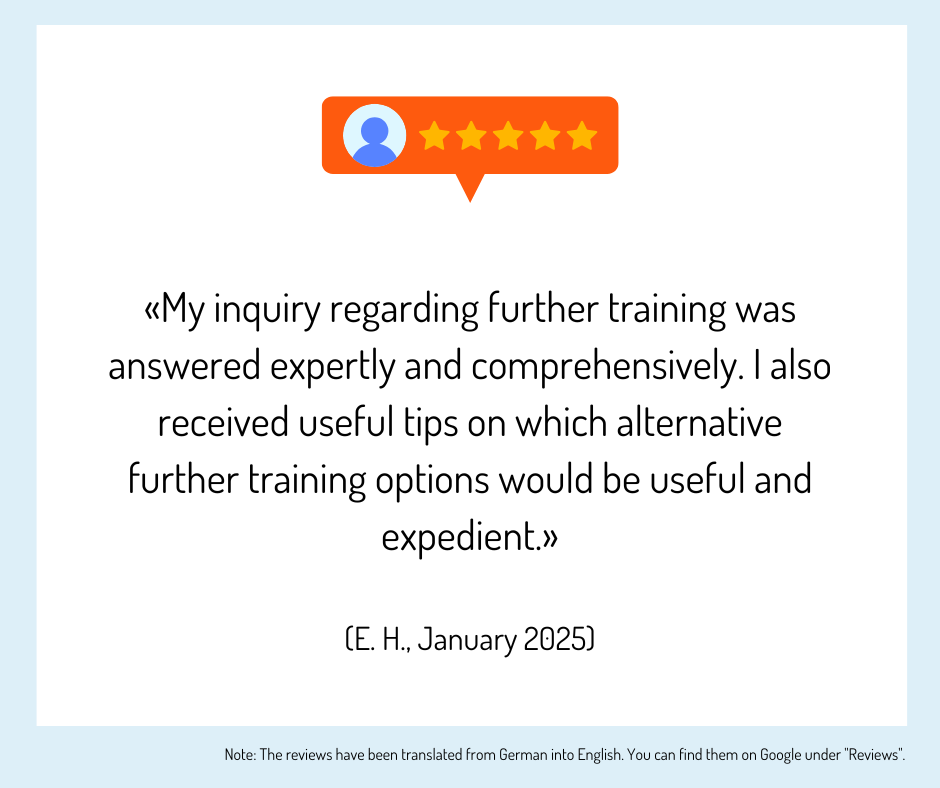Returning to work: providers, information, tips, FAQs
Take the step back with a return to work
Questions and answers
Are there only counseling sessions or also courses for re-entry into working life?
In addition to individual coaching sessions, there are also seminars designed to make it easier for you to return to work. These cover a wide range of topics and teach you various methodological, social and personal skills. You will carry out a location analysis, formulate your goals and wishes and determine your further training needs, learn how to rewrite your CV and make contacts. As each seminar in the area of professional reorientation or professional re-entry has a different focus, you should definitely obtain detailed information about the objectives of the course, the target group, the duration and the methods before registering. Simply use our contact form (free of charge and without obligation) and you will receive all the information by email or post.
How can a housewife return to work?
Returning to work as a housewife is not easy and reconciling a job with children is often very challenging. Protection against dismissal usually expires 16 weeks after the birth. Women who want to stay in work therefore have to hurry. However, if this is too quick for you, you can return to work a little later. However, there is no special treatment for mothers. On the contrary - wages and promotion prospects are usually lower when working part-time. In addition to economic considerations, variety, self-realization and affirmation usually play an important role for working mothers. In Coaching Wiedereinstieg Beruf, it is recommended to be self-confident and aware of your own potential. But also to have a realistic assessment of your own skills. This is because mothers usually have more soft skills such as communication skills, conflict management skills, organizational talent, professional experience and reliability than younger career starters. Mothers have some good arguments on their side, especially if they are returning to work after a short break.
How can I plan my return to work properly?
The return to working life should be properly planned - even if it means returning to a familiar job. Especially when returning to work after a longer break, you need to refresh your existing knowledge beforehand. This is because the demand for the professional qualifications of people leaving the workforce is likely to decrease with every month that they are away from their job. If you assess your work profile realistically, you can score points with employers. The good thing is that you can catch up on specialist knowledge in any industry. And no one can take away the professional experience you have already gained. So show potential employers your desire and motivation - perhaps by having already done something (course, internship, etc.) - and inform them about your current career goals. Carry out an objective analysis beforehand and find new and attractive prospects for re-entering working life.
Does it make more sense to return to work part-time or full-time?
Whether you return to work part-time or full-time depends on many different factors, such as your personal situation and available time, your role, the industry you worked in and want to return to and your career goals. Unfortunately, it is not yet possible to obtain part-time employment in higher positions in all industries and companies, but in less qualified professions it is easily possible. It is therefore always up to you to decide which employment relationship is sensible and realistic for you personally. Advice on returning to work can be helpful when considering and implementing your goals.
What is important when returning to work after illness?
The following is important when returning to work after illness:
- Insurance companies pay for the transition period until you return to work and for reduced activity
- you can try things out and see what is (still) possible
- the feeling of being treated as a fully-fledged person, even if your work performance is not yet 100 percent
- the confidence that you can say without feeling bad if a task is not yet manageable
- Support where it is needed, but no protective posture
- Solidarity from other employees, because no one is immune to serious illness or an accident
- the confidence that you will find your way back to your old performance, even if you take a step backwards
- Real sympathy instead of a lot of curious questions - the course of the disease is a private matter
- the recognition that you have come through a difficult time
- Accepting any changes that have taken place as a result of the illness
Is a seminar on "Returning to work" only aimed at women after a maternity leave?
Although returning to work is often equated with mothers returning to work after parental leave and many services are actually aimed at this target group, it is not only housewives and mothers who can find professional support. Such coaching or advice can also be very helpful for people who have been absent from the job market for a period of time, whether long or short, for other reasons, such as a chronic illness, a serious accident, burnout, a family matter (such as caring for a sick or elderly parent) or one of the many other possible reasons for not being able to work. Particularly in the case of individual coaching or counseling, the prerequisites and backgrounds do not play a role, as you are not taking part in a public seminar where all participants have to meet roughly the same prerequisites, but are working on a solution for implementation based on your current situation.
What are the advantages of returning to work after maternity leave?
Returning to work after maternity leave has the following advantages:
- Mothers remain independent and autonomous
- Women can also achieve their professional goals and realize their own potential
- an employee who is also a mother can bring the skills acquired in the family into the job
- Returning to work after maternity leave can also be an opportunity for reorientation
- A mother who is happy in her job brings family satisfaction
- When it comes to mother-child bonding, it is not the amount of time a mother spends with her child every day that matters, but the quality
- Returning to work for mothers has a positive effect on the child's development if the mother's job contributes to her well-being
- Returning to work after parental leave makes economic sense, especially for well-trained employees
I'm already over fifty and would finally like to return to my old job after more than 20 years. Is it that easy?
Returning to work after a long absence can sometimes be quite problematic, especially in professions that require specialized knowledge, which develop quickly and are continuously adapted to the current state of knowledge. Depending on the profession you worked in, a 20-year absence can therefore make it difficult to return to your old position and often requires further training to (re)acquire the necessary skills and competencies. In many professions, however, returning to work is less problematic, for example in retail, hospitality or construction. Career counseling that discusses your goals and opportunities with you, shows you ways forward and works with you to implement them is highly recommended in such cases.
Tips and information on returning to work
Erfahrungen, Bewertungen und Meinungen zur Ausbildung / Weiterbildung
Haven't found the right training or further education yet? Benefit from educational advice now!
Further training is not only important in order to maintain or increase professional attractiveness, investing in training or further training is still the most efficient way to increase the chances of a pay rise.
The Swiss education system offers a wide range of individual training and further education opportunities - depending on your personal level of education, professional experience and educational goals.
Choosing the right educational offer is not easy for many prospective students.
Which training and further education is the right one for my path?
Our education advisory team will guide you through the "education jungle", providing specific input and relevant background information to help you choose the right offer.
Your advantages:
You will receive
- Suggestions for suitable courses, seminars or training programs based on the information you provide in the questionnaire
- An overview of the different levels and types of education
- Information about the Swiss education system
We offer our educational counseling in the following languages on request: French, Italian, English
Register now and concretize your training plans.
